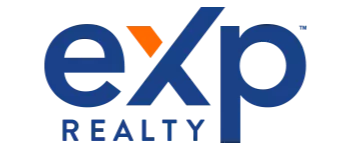How to Choose the Right Mortgage Type for Your Home Purchase

Types of Mortgages Explained
Here are the primary mortgage options available to homebuyers:
1. Fixed-Rate Mortgages (FRM)
A fixed-rate mortgage has an interest rate that remains the same throughout the loan term, offering predictable monthly payments.
- Best For: Buyers who plan to stay in their home for the long term and want stability in their monthly payments.
- Loan Terms: Common terms are 15, 20, or 30 years.
- Pros:
- Predictable payments make budgeting easier.
- Protection from interest rate increases.
- Cons:
- Typically higher interest rates than adjustable-rate mortgages (ARMs).
2. Adjustable-Rate Mortgages (ARM)
An ARM features an interest rate that starts lower than fixed-rate mortgages but adjusts periodically based on market conditions.
- Best For: Buyers planning to sell or refinance before the adjustable period begins.
- Loan Terms: Usually starts with a fixed rate for 3, 5, 7, or 10 years, then adjusts annually.
- Pros:
- Lower initial interest rates compared to fixed-rate loans.
- Potential savings if interest rates decrease.
- Cons:
- Payments can increase significantly if rates rise.
- Less predictable over the long term.
3. FHA Loans
FHA loans are insured by the Federal Housing Administration and designed to make homeownership more accessible, especially for first-time buyers.
- Best For: Buyers with lower credit scores or smaller down payments.
- Loan Terms: Typically 15 or 30 years.
- Pros:
- Low down payment requirements (as little as 3.5%).
- Flexible credit score requirements.
- Cons:
- Requires mortgage insurance premiums (MIP), which can increase monthly costs.
- Loan limits vary by area and may not cover higher-priced homes.
4. VA Loans
VA loans are available to eligible veterans, active-duty service members, and some members of the National Guard and Reserves. These loans are backed by the U.S. Department of Veterans Affairs.
- Best For: Military-affiliated buyers seeking affordable financing with no down payment.
- Loan Terms: Typically 15 or 30 years.
- Pros:
- No down payment required.
- No private mortgage insurance (PMI).
- Competitive interest rates.
- Cons:
- Must meet specific eligibility requirements.
- Requires a VA funding fee, which can be financed into the loan.
5. USDA Loans
USDA loans, backed by the U.S. Department of Agriculture, are designed for low- to moderate-income buyers in rural or suburban areas.
- Best For: Buyers in eligible rural areas who meet income requirements.
- Loan Terms: Typically 30 years.
- Pros:
- No down payment required.
- Lower mortgage insurance premiums than FHA loans.
- Cons:
- Geographic restrictions apply.
- Requires a 1% upfront guarantee fee and an annual fee.
How to Choose the Best Mortgage Type for Your Needs
1. Evaluate Your Financial Situation
- Credit Score: Higher credit scores often qualify for better rates on conventional and adjustable-rate loans. Lower scores might make FHA or VA loans more suitable.
- Down Payment: If you have limited savings, FHA, VA, or USDA loans can help minimize upfront costs.
- Debt-to-Income (DTI) Ratio: Lenders use your DTI ratio to assess your ability to repay. Lower ratios provide more loan options.
2. Define Your Long-Term Goals
- How Long Will You Stay in the Home?:
- If you plan to stay for the long term, a fixed-rate mortgage offers stability.
- If you’re considering selling or refinancing in a few years, an ARM could save you money with its lower initial rate.
- Future Plans: Consider whether you’ll want to upgrade to a larger home or downsize in the future.
3. Compare Loan Costs
- Interest Rates: Fixed-rate mortgages typically have higher initial rates than ARMs but provide stability.
- Closing Costs: Some loan types, like VA or USDA loans, may have lower closing costs or offer ways to finance fees.
- Mortgage Insurance: Be aware of additional insurance costs for FHA and USDA loans, which increase monthly payments.
4. Get Pre-Approved
Before deciding on a mortgage type, work with a lender to get pre-approved. This process provides clarity on:
- The loan amount you qualify for.
- Potential monthly payments.
- The best loan types for your financial profile.
Fixed-Rate vs. Adjustable-Rate Mortgages: A Quick Comparison
| Feature | Fixed-Rate Mortgage | Adjustable-Rate Mortgage |
|---|---|---|
| Interest Rate | Fixed for the entire term | Starts fixed, adjusts periodically |
| Monthly Payments | Stable and predictable | May increase or decrease over time |
| Best For | Long-term homeowners | Short-term homeowners or those expecting rate decreases |
| Risk | No risk of rate increases | Potential for higher payments if rates rise |
Final Thoughts
Choosing the right mortgage type is an essential step in buying your home. By understanding your financial situation, long-term goals, and the various loan options available, you can make an informed decision that aligns with your needs.
If you’re ready to explore mortgage options or need help navigating the home-buying process in Morgantown, West Virginia, I’m here to guide you every step of the way. Contact me today to get started!
Categories
Recent Posts











"My mission is to make your real estate journey as smooth and stress-free as possible. Whether you're buying your first home or navigating financial challenges, I'm here to provide transparent, friendly, and timely support every step of the way."
